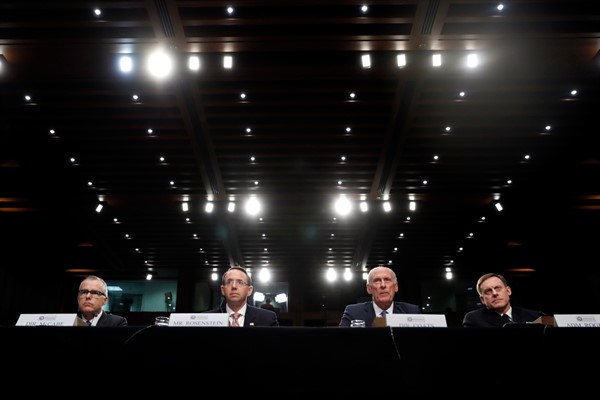Over the past year, new threats to peace and security have emerged so quickly it is difficult to keep up. The COVID-19 crisis, now well into its second year, will surely continue to rage for some time, and climate change is likely to fuel widespread upheaval in the future. Extremism and polarization, fueled by social media, permit the ancient hatreds of fanaticism, misogyny and racism to inspire terrorism, mass shootings and mob violence. Ever-more sensitive data is being hacked at alarming rates, with rival powers unable or unwilling to agree on enforceable norms to avoid cyber conflict and improve cybersecurity.
Any one of these threats could be—and, under normal circumstances in Washington, would be—used as an excuse to enhance the surveillance powers of the Federal Bureau of Investigation, the National Security Agency and the Central Intelligence Agency. Three of the past four presidents—Bill Clinton, George W. Bush and Barack Obama—were successful in making the case to the American people that enhanced surveillance was needed to keep them safe from international and domestic threats. Congress responded to the threat of transnational terrorism, in particular, with law after law that gave new powers to the FBI, NSA, CIA and other three-letter agencies.
Yet despite today’s anxious climate, legislation to expand the state’s surveillance powers does not appear to be on the horizon. This is due to a rare breakdown in Washington’s pro-surveillance consensus, as the unauthorized disclosures of Edward Snowden, the former NSA contractor who exposed America’s mass surveillance programs, continue to resonate in unexpected ways more than seven years later.

